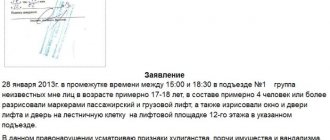Like any drugs, drugs, before they reach consumers/drug addicts, are prepared from raw materials according to various recipes. Many recipes are used to prepare drugs, but no matter which one is used, the act is characterized as illegal. Of course, if we are not talking about industrial production under special licenses. Many legislative documents are devoted to illegal acts related to drug addiction. People who lack sufficient information often confuse these crimes, although they differ due to many factors.
The minimum punishment for illegal drug production is administrative arrest and a fine.
Judicial authorities determine responsibility for the manufacture of narcotic drugs for criminals, guided by Article 228 of the Criminal Code of the Russian Federation. If the attackers are accused of producing narcotic and psychotropic drugs, then the punishment follows in accordance with Article 228.1. Criminal Code of the Russian Federation. In addition to criminal law, the court can determine punishment for offenses in accordance with the Code of Administrative Offenses. Responsibility in such cases is administrative and the punishment is more lenient.
Definition
The manufacture of narcotic substances is a deliberate act that violates the laws of the Russian Federation. The goal is to obtain drug-containing products ready for use. This category also includes processing to increase the narcotic effect. An unlawful act is qualified regardless of the methods and technologies used.
Illicit drug production is considered completed from the moment the drug acquires properties that allow it to affect the central nervous system. Processing is considered complete from the moment the concentration has been increased and the intoxicating effect it provides is enhanced. Criminals bear criminal liability for the preparation of psychotropic substances or drugs, regardless of the size/quantity of the prepared substance and its chemical composition.
List of prohibited items for storage
Possession of narcotic, psychotropic substances and their analogues entails criminal liability. The list of drugs that have a psychotropic or intoxicating effect is quite wide, but the most common among them are the following:
- heroin;
- hashish;
- cocaine;
- lysergic acid;
- poppy straw;
- methamphetamine;
- opium;
- ephedron;
- amphetamine;
- desomorphine, etc.
Production Features
The term “proceedings” has no definition in the Criminal Code of the Russian Federation, therefore investigative and judicial authorities often interpret it very arbitrarily. In many cases, arbitrary interpretation is the reason for the incorrect classification of the actions of the accused. Regardless of the size of the funds produced (significant, large, especially large), the acts of criminals fall into the category of particularly serious violations of the law.
Drug control authorities and the police are interested in increasing the detection rate, which becomes the reason for the unjustified conviction of citizens to long prison terms. In fact, in the event of an appeal and retrial, it may turn out that the preparation of prohibited compounds took place. So what exactly is the difference between manufacturing and illegal manufacturing?
According to the provisions of Federal Law No. 3-F3, this illegal act is defined as activities the purpose of which is the serial production of drugs. The definition of “batch” refers to a process during which products are prepared in batches, that is, substances have the same characteristics or a common feature. The characteristic features of this offense are:
- use of special equipment;
- batch cooking;
- packaging of the final product.
Batches may differ in the types of packaging and certain individual characteristics, therefore a mandatory stage of the investigation is to conduct a chemical examination of the composition of the batches.
Differences
The main factor that distinguishes manufacturing from manufacturing is the end goal. If they prepare drugs containing drugs for their own use, they produce them for the purpose of distribution/sale, shipment, smuggling, etc. serially or in large volumes. Criminals can manufacture drugs for the following purposes:
- pay for goods/services;
- to repay a debt;
- compensate for any damage;
- “treat” acquaintances, friends, etc.;
- try drugs;
- replace purchased ones if it is impossible to purchase them.
Such actions are one-time in nature (or repeated several times), the quantity of manufactured products is relatively small (although there are exceptions), special expensive equipment is not used (mostly improvised means or handicraft tools are used).
In most cases, the entire process takes place in a home kitchen or in a specially designated room. There is no sanitation of any kind; drug addicts only control compliance with the technology and the composition of the final product. As a result, there are many deaths or severe damage to internal organs.
The difference between illegal manufacturing and processing and production
Illegal drug manufacture must be distinguished from illicit production. The differences are based on parameters such as:
- production method (usually special equipment is used for production);
- volume of production and seriality (this sign indicates the presence of common characteristics in the finished substances);
- packaging of drugs;
- degree of readiness for further consumption.
Illegal production and processing of drugs for their qualification under Art. 228 of the Criminal Code of the Russian Federation should not have sales purposes. Manufacturing goals are usually:
- desire to try illegal drugs;
- treat friends;
- to repay a debt;
- pay for a specific service or product;
- replace purchased drugs if there is no money for them, etc.
Manufacturing and processing are usually one-time in nature, occurring without the use of expensive equipment using improvised means, etc. Whereas drugs are produced for the purpose of their subsequent distribution and sale, smuggling or transfer for profit.
Responsibility for the production of narcotic drugs is more stringent, since it has a greater public danger than manufacturing.
Sides subjective and objective
The subject of the offense is narcotic and psychotropic drugs of various compositions and modes of action. Public relations to ensure the health of Russian citizens are the main object of the crime. Social relations that develop in the direction of ensuring the normal functioning of institutions and organizations (research institutes, pharmaceutical, medical, etc.) represent an additional object. The objective side of crimes is actions that violate the rules for handling prohibited compounds established by legislative structures. The basic norm is set by the Minister of Health of Russia and the Minister of Internal Affairs. The local administration has the right to develop individual rules.
To open a criminal case, it is sufficient to have a proven fact of violation of the legally established rules for handling drugs. Crimes of this type are characterized by a formal composition, that is, they are considered completed at the moment when the rules were violated, regardless of whether the consequences occurred or did not occur. The subjective side is characterized by direct intent. If a person has violated the rules in this area, it must be established that the accused knew the rules and could have acted in accordance with the rules. Subjects are non-officials and officials who have reached 16 years of age and are required to comply with the rules due to the work performed or position held.
Determining the size of stored substances
What matters is the volume of narcotic and psychotropic substances found: the larger the amount of drugs found, the greater the amount of responsibility that will be imposed on the criminal. More details about which sizes are considered large and which are especially large are specified in the legislative acts related to the illegal possession of narcotic and psychotropic substances. For example:
- 0.1-5 g - large sizes of dried marijuana. Consequently, possession of marijuana of less than 0.1 g will be considered an administrative offense, and possession of more than 5 g will be considered an especially large-scale crime.
- 0.2-2.5 - large sizes of dried poppy straw.
- Up to 0.0005 is large amounts of heroin, and more than 0.0005 is especially large.
- Up to 3 g is a large amphetamine, and more than 3 g is especially large.
Based on such indicators, the justice authorities impose a certain punishment. However, the shelf life of the drugs itself does not affect liability.
Qualification
Illicit preparation differs from production in that the end result of the intentional actions is the production of one or more finished portions of drugs. Many lawyers quite reasonably believe that it is unacceptable to classify the actions of persons involved in the preparation of “drugs” several times as production.
- If a person producing narcotic substances intends to sell them, his actions are qualified as preparation for drug trafficking. When determining a preventive measure, Articles 30, Part 1 and 228.1 of the Criminal Code of the Russian Federation are taken into account.
- If an attacker is engaged in production for subsequent distribution, but due to circumstances beyond his control, does not complete the intent, if there are grounds and evidence, the act is qualified as preparation for illegal sale. The actions of the offender are qualified in accordance with Articles 228.1 and 30 Part 1.
- If a person accused of manufacturing compounds prohibited by law did not pursue the goal of distributing them, then, despite the presence of signs of a completed crime, the attacker may get off with a more lenient punishment than under Article 228.1.
Punishment
Offenses related to the illegal receipt of psychotropic or narcotic drugs or analogues are subject to punishment in accordance with Articles 228 and 228.1 of the Criminal Code of the Russian Federation. According to Art. 228.1 of the Criminal Code of the Russian Federation, if criminals prepared drugs or psychotropic substances in large quantities without the purpose of selling these drugs, the following types of punishment are provided:
- fine up to 40 thousand rubles;
- a fine in the amount of 3 months' salary;
- correctional labor for up to 2 years;
- imprisonment for up to 3 years.
If prohibited drugs were manufactured in especially large quantities, then, according to Article 228, Part 2, the offender will be punished by imprisonment from 3 to 10 years with or without a fine of up to 500 thousand rubles or recovery of income for a period of up to 5 years.
The court establishes punishment for manufacturers in the form of imprisonment for a term of 8–20 years with a fine of up to 1 million rubles if the offenses were committed:
- organized group;
- a person who used his official position;
- in relation to a person who has not reached 14 years of age;
- on a particularly large scale.
The note to Article 228 contains the criteria for determining the amounts of substances prohibited by law:
- large size exceeds 10 or more times the average single dose;
- especially large exceeds the average single dose by 50 or more times.
Among experts in the field of drug addiction, discussions have repeatedly arisen regarding the definition of an “average single dose.” The reason for the debate was the difficulty of determining dose sizes. The government of the Russian Federation took as a basis the size of the “average single dose” as close as possible to the doses actually consumed by drug addicts. There is a special table of “average single doses” that is used by law enforcement and judicial authorities.
The lightest punishment is administrative liability, which implies:
- 15 days of arrest;
- fine 4 – 5 thousand rubles.
In addition to the above, the court may choose the following preventive measures:
- corrective/compulsory work – from 480 hours to 2 years;
- restriction of freedom up to 2 years;
- prohibition to hold a certain position or carry out activities for 20 years;
- life imprisonment (extremely rare).
Concept and norms of legislation
Drugs are a prohibited substance because they have a stupefying effect on a person’s consciousness and cause harm to the life and health of citizens. For this reason, the circulation of narcotic substances is under strict state control. Violation of the ban on any form of activity, including drug production, is punishable according to the provisions of the Criminal Code of the Russian Federation.
Criminal liability
What does the manufacture of narcotic substances include? It is understood as a deliberate action of citizens aimed at obtaining a drug from narcotic plants, medicinal or chemical, or their individual parts. A complete list of narcotic substances restricted or prohibited in free circulation is recorded in Government Decree No. 1002.
Criminal legislation provides for the following principles of prosecution for the manufacture of prohibited substances:
- without the purpose of subsequent sale (Article 228 of the Criminal Code of the Russian Federation);
- The criminal law distinguishes from manufacturing the production of narcotic substances, which includes the serial production of drugs for subsequent distribution (Article 228.1 of the Criminal Code of the Russian Federation);
- Criminal prosecution is allowed only for cases of illegal manufacture of a prohibited substance, since in some situations this action can be carried out absolutely legally (for medical purposes).
Note!
Article 228 of the Criminal Code of the Russian Federation punishes actions to manufacture drugs without the purpose of subsequent distribution. This means that the manufacturer plans to use the resulting drug purely for personal consumption.
Detection of the manufacture of narcotic drugs can be carried out as follows:
- as a result of operational-search actions of police officers or other law enforcement agencies. For example, establishing cases of ordering narcotic plants or their parts;
- when investigating other illegal actions of citizens;
- based on the results of checking oral and written requests;
- as a result of the drug manufacturer confessing to the police station and voluntarily surrendering prohibited substances.
Note!
In case of voluntary release of manufactured drugs, the citizen will completely avoid criminal liability. This is indicated in the note to Art. 228 of the Criminal Code of the Russian Federation and applies to any amount of drugs supplied.
If manufacturing is detected by employees of operational-search authorities, they need to properly record this fact in documents. To do this, perform the following steps:
- if, as a result of an inspection of the place of residence or work, the fact of drug production is established, a protocol is drawn up in the presence of witnesses;
- during the seizure of a drug and various devices for its manufacture, law enforcement officers must describe in detail not only the substance, but also its visual characteristics, approximate size (quantity, weight or volume);
- upon discovery of a crime, a citizen can be detained for up to 48 hours, after which the court will establish a preventive measure for him for the entire period of the preliminary investigation;
- the seized drug will be sent for a special examination, which is designed to determine the specific type of substance, as well as its size.
When carrying out any procedural activities, police officers are obliged to explain to the citizen all his rights, including the right to the assistance of a lawyer. Even if a citizen is not recognized as a suspect or accused in a criminal case, his right to invite a defense lawyer cannot be limited.
If the fact of drug manufacture is reliably identified and confirmed, the presence or absence of the remaining elements of Art. 228 of the Criminal Code of the Russian Federation (storage, transportation, etc.) will not be a qualifying feature. To impose a criminal penalty, even one proven fact of a criminal act will be sufficient.
Administrative responsibility
An article for the manufacture of drugs is also provided for in administrative legislation. If during the pre-investigation check the amount of drugs produced did not exceed a significant amount, liability will arise only according to the rules of Art. 6.8 Code of Administrative Offenses of the Russian Federation. In this case, administrative sanctions will include a fine of 4 to 5 thousand rubles, or arrest for up to 15 days. Foreign citizens also face consequences in the form of forced expulsion from the territory of the Russian Federation.
The participation of a lawyer during all investigative actions will avoid criminal prosecution if a significant amount of manufactured substances is not proven. To do this, he is given the right to file objections not only to various types of protocols, but also to the results of the examination. The lawyer may also file a petition to order a repeat or additional examination.
Let's consider what mandatory elements of a crime will be established during the inquiry, preliminary investigation or trial.
Lawyer's actions
A qualified lawyer who has begun to defend the accused under Article 228.1 must subject the actions of his client to the most thorough analysis. The purpose of the analysis is to clarify the following facts:
- the ward’s actions are serial, or he produced drugs one/several times;
- whether the preliminary investigation bodies created signs of “serialism” artificially.
If, during his own investigation or based on an analysis of the defendant’s actions, the lawyer discovers that the qualification was unfounded and on an illegal basis, he gets the opportunity to build a line of defense in such a way that the trial ends with the most lenient sentence.
Composition of the crime and its types
Article 228 of the Criminal Code of the Russian Federation defines a list of mandatory signs of the specified unlawful act. The crime that must be proven by the prosecution includes the following elements:
- the subject of the criminal act is various types and forms of prohibited substances (narcotics, psychotropic drugs, as well as their analogues);
- the objective side is the specific actions of a citizen aimed at obtaining a prohibited substance from narcotic plants or their parts, as well as medicines and chemicals;
- the subjective side is direct intent, since the citizen is aware of the consequences of his actions and wants to bring them to their logical conclusion;
- subject of the crime - the perpetrators may include persons who at the time of committing the criminal act have reached the age of 16 years and are recognized as sane.
Criminal legislation allows for increased punitive sanctions if additional qualifying characteristics are established in the actions of the criminal. For Art. 228 of the Criminal Code of the Russian Federation is the size of the manufactured drug substance - significant, large and especially large. Determining the volume of illegally manufactured drugs occurs at the preliminary investigation stage, for this it is necessary to obtain an expert opinion.
Determining the amount of drugs seized often plays a key role in correctly classifying a crime. In addition to cases where a citizen’s actions will be considered only under the Code of Administrative Offenses of the Russian Federation, the slightest mistake during the examination can significantly increase or decrease the prison term. To do this, a professional lawyer will pay special attention to the correctness of drawing up an expert opinion and conducting an actual study of the seized substances.
If during the investigation it is established that the production of drugs was actually intended for subsequent distribution, the crime will be reclassified under Article 228.1 of the Criminal Code of the Russian Federation. To do this, a resolution is issued by an official of the investigative authorities, which must be approved by the prosecutor.
What will be the assistance of a lawyer in protecting citizens from punishment under Article 228 of the Criminal Code of the Russian Federation?
From the moment the first procedural actions are carried out, a citizen can benefit from the assistance of a defense lawyer. Although police officers or an investigator will offer to use the services of a lawyer as assigned, it is better to choose a specialist yourself and enter into an agreement with him. Only then is the citizen guaranteed a full range of professional services.
The powers of a lawyer are defined by the Code of Criminal Procedure of the Russian Federation and include:
- unlimited consultation of the principal at all stages, stages and individual procedural actions carried out within the framework of a criminal case;
- protection of the client’s interests during any type of procedural activities (interrogation, confrontation, search, etc.);
- filing objections and additions to protocols of investigative actions;
- appealing unlawful actions and decisions of officials of investigative bodies;
- challenging the chosen preventive measure in the form of detention;
- collection of evidence aimed at protecting the client for inclusion in the materials of the criminal case;
- working with case materials, obtaining copies and extracts from procedural documents in preparation for the trial.
The right to defense includes the opportunity to fully or partially refuse to testify from the moment a citizen is recognized as a suspect or accused. Since police officers or investigative agencies often use illegal methods of obtaining information (including using physical or psychological pressure), the lawyer will immediately notify the prosecutor’s office of all such facts and will ensure that the client’s legal rights are respected.
If, as part of an inquiry or investigation, a citizen’s guilt is objectively confirmed by the collected evidence, he may face a long prison sentence. In some cases, a plea bargain may be a justified means of mitigating the fate of the accused. To do this, the lawyer will file a petition addressed to the investigator and the prosecutor to conclude a pre-trial agreement.
The transaction is completed taking into account the following nuances:
- signing an agreement is a right, and not an obligation, of the prosecution; for this, a reasoned decision must be made by the investigator and an official of the prosecutor's office;
- under the terms of the agreement, the accused must not only fully admit his guilt, but also guarantee the investigative authorities full assistance in the investigation of the crime. The text of the document will indicate a specific list of actions that the citizen must perform;
- in exchange for assistance, the accused receives a guarantee of an improvement in his situation when sentencing. In some cases, it is possible to choose a more lenient sanction or apply a suspended prison sentence.
Verification of compliance with the terms of this agreement will be carried out by the court on the proposal of the prosecutor. If the accused has not fulfilled his part of the deal, then the punishment will be assigned according to the general rules.
Acquittal or commutation of sentence
According to the note to Article 228 of the Criminal Code of the Russian Federation, persons who hand over the products they have manufactured voluntarily can be exempted from criminal liability. In addition, investigative authorities welcome active assistance in solving crimes related to drug trafficking and assistance in identifying and capturing offenders. In order for the delivery of drugs to be designated as voluntary, law enforcement officers must be sure that the attacker showed his own will when handing them over to the appropriate authorities. The motives behind which manufacturers of illegal drugs decide to sell them are very different:
- advised by friends and relatives;
- the attacker repented;
- the fear of being held accountable for one’s actions according to the law overcame other emotions.
It does not matter where exactly the manufacturer sells soy products:
- to medical institutions;
- to the prosecutor's office;
- internal affairs officers, etc.
In order for an attacker to be released from liability, both conditions of release must be present. If illegal drugs were discovered during the arrest of the manufacturer or during activities aimed at detecting and seizing drugs, this cannot be a voluntary surrender. In this case, the attackers are not exempt from criminal liability.
How to identify the manufacturer of narcotic drugs
Smuggled drugs cost a lot of money, so drug addicts are increasingly synthesizing Datura at home. It is not at all necessary that they sell it to other drug addicts, often “treating” fellow sufferers. But such a neighborhood in any case does not bring pleasure, since the manufacturer’s apartment is a brothel frequented by extremely unpleasant people. Such apartments can become a source of danger for neighbors. It is not difficult to identify apartments and houses in which the potion is brewed, since the distinctive features are:
- smell (usually pungent and unpleasant);
- many visitors of different ages at any time of the day;
- frequent ambulance visits;
- syringes, needles and other paraphernalia of drug addicts lying near the entrance or yard.
You should also pay attention to the appearance of visitors:
- carelessly and sloppily dressed;
- sallow skin, bluish hands;
- dilated or constricted pupils, “glassy” eyes;
- expressionless, empty look.
One of the most common home-made drugs in Russia is Desomorphine. Drug addicts who consume Desomorphine live no more than 3–4 years. It is made from drugs sold in pharmacies, like the no less popular Pervitin. Such drugs are especially dangerous because literally within a year the addict is completely destroyed as a person.
Currently, drug addiction in Russia is rapidly developing. The consequence of this will most likely be tougher penalties for drug production. As a result, the problem of correct classification of crimes becomes extremely acute. In order to avoid blaming the innocent, careful and scrupulous work by law enforcement and judicial structures is required. Lawyers provide invaluable assistance in clarifying the true state of affairs.








